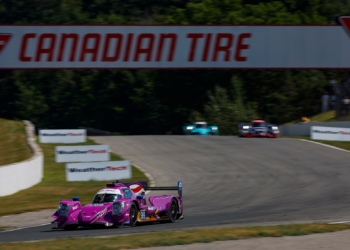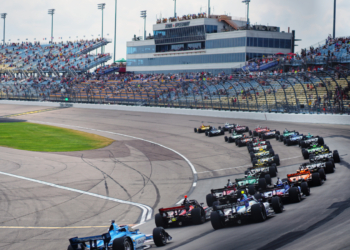Motorsport Week continues its team-by-team mid-season Formula 1 review series with Ferrari, as it bids to end its decade-long title drought with the fastest car it has ever produced.

Ferrari fell short in 2017 amid driver errors, mechanical gremlins and Mercedes’ eventual superiority, but its admirable attempt proved that it was a force to be reckoned with once more. This year it has taken another step forward, producing a strong chassis, complemented by striking engine gains that have lifted it firmly into – and perhaps above – Mercedes territory. The team has also remained strong after last season’s setbacks, shirking the slump it has previously entered into, and has worked diligently where required, often emerging as a potent threat on Saturdays after indifferent Fridays. It has had the pace to score more wins than its current tally and only in Hungary did it truly drop the ball in terms of strategy. The biggest question is whether they can sustain this current form. Last year also looked very promising – and last year Sebastian Vettel in fact held the title advantage at this stage. A title triumph in either category would be a fitting tribute to Sergio Marchionne.

This has been a frustratingly perplexing campaign from a driver who has sometimes been untouchable and elsewhere made very costly mistakes. Vettel opportunistically triumphed in Australia, was masterful in Bahrain, totally dominant in Canada, and fought back to take a deserved win in Britain with a classy and perfectly judged pass on Valtteri Bottas. But in Azerbaijan his post-restart move on Bottas backfired, in France he was sucked into a first-lap clash, and in Germany the most minor of misjudgements had major ramifications as he agonisingly skated into the gravel. Those three races alone count for a loss of 43 points, and as in 2017 they soon add up in the context of a closely-fought title fight, especially with Lewis Hamilton in the silver corner. He does, though, extract the maximum from his machinery over one-lap, as testified by his advantage over Kimi Raikkonen, and the fact his wet-weather hesitancy in Hungary was his first non-top-three of the year. But in already facing a 24-point deficit Vettel will have to be bulletproof when Formula 1 returns from its summer break, for any more slip-ups will surely be terminally punished.

Missed Q3 opportunities? Check. Decent, but not quite great, performances? Check. Ably supporting Sebastian Vettel? Check. Kimi Raikkonen has had a solid 2018 campaign even if the top step of the podium has remained elusive, with eight top-three finishes to his credit in 12 Grands Prix. The pair of retirements he suffered were not his fault, and only in Canada did he put in a thoroughly dismal display, finishing a lacklustre sixth as Vettel triumphed. In Austria his initial first lap heroics descending into a loss of two positions, that ultimately cost him the win, perhaps epitomised his second Ferrari stint – close, but no cigar. He has sagely played the team game, though hints of frustration crept into view in Britain, and more prominently Germany, where the engineers were very vocally made to state their instructions. Internal upheaval higher up within Ferrari’s corporate structure is surely good news for Raikkonen’s 2019 prospects, but can he finally end his five-year win drought when the summer break concludes?






